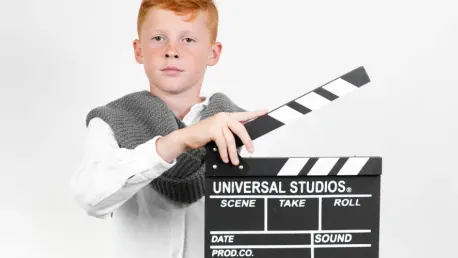Throughout the increasingly digital landscape, young content creators and actors have often been exposed to the exploitative nature of the entertainment and social media industries. Recent developments in Utah have led to the introduction of a groundbreaking piece of legislation known as HB322. Unanimously approved by the House Business and Labor Committee, HB322 aims to safeguard child actors and social media influencers by ensuring their earnings are protected and providing them with the right to remove content once they reach adulthood. These measures mark a critical step in addressing the vulnerabilities faced by minors in the realm of online content creation and acting.
Financial Protection for Minors
The key provision of HB322 is the requirement for parents to place earnings made by minors from acting or social media content into trust accounts. This measure ensures that the financial gains of child actors and influencers are preserved for their future, preventing misuse or misappropriation by parents or guardians. The bill’s sponsor, Rep. Doug Owens, clarified that the legislation is aimed at those earning significant income, thereby safeguarding the substantial sums that some young influencers generate. By mandating trust accounts, the bill seeks to create a financial safety net for minors, allowing them access to their earnings once they reach adulthood, when they can fully understand and manage their finances independently.
The importance of this financial protection was underscored by heartfelt testimonies from individuals like Kevin Franke, the ex-husband of former YouTuber Ruby Franke. Kevin expressed deep regret for involving his children in public social media, emphasizing their inability to provide informed consent. This sentiment was echoed by his sixteen-year-old daughter Julie Franke, who lamented the loss of her savings due to her mother’s actions. Julie’s experience highlights the necessity of the bill in preserving the financial security of minor content creators and preventing exploitation by their own families.
Right to Remove Content
Another crucial aspect of HB322 is the provision allowing children to remove online content once they reach adulthood. This acknowledges the long-lasting impact that digital footprints can have on an individual’s life and reputation. Children who were once thrust into the public eye by their parents will have the opportunity to reclaim their privacy and remove content that they no longer want to be associated with. This measure aims to empower young adults by giving them control over their digital presence, which can significantly affect their future opportunities.
Support for this provision was also evident from Kevin Franke’s younger daughter, eleven-year-old Eve Franke, who shared her perspective on the positive and negative aspects of YouTube. While acknowledging the platform’s potential benefits, Eve underscored the necessity for children to be treated with respect and not be exploited for the gain of their parents. By offering the right to remove content, HB322 addresses the power imbalance between young content creators and their guardians, ensuring that children’s best interests are prioritized.
The lack of opposition during the committee stage further demonstrates broad support for the bill’s intent. Content creators, represented by lobbyist Dave Davis, remained neutral, indicating their willingness to adapt should the bill become law. This neutrality suggests a level of acceptance and acknowledgment of the need for these protections within the industry, paving the way for smoother implementation and enforcement.
A Notable Legislative Effort
In today’s digital age, young content creators and actors are frequently exposed to the exploitative practices of the entertainment and social media industries. Responding to this, Utah has recently introduced a pioneering piece of legislation known as HB322. This bill, which was unanimously approved by the House Business and Labor Committee, is designed to protect the earnings of child actors and social media influencers. It also grants them the right to remove content they created once they reach adulthood. HB322 aims to address the significant vulnerabilities that minors face within the digital content creation and acting arenas. This legislative effort marks a crucial step towards ensuring the safety and financial security of young talents in an increasingly digital world. By setting these protections in place, Utah is paving the way for a more ethical approach to managing the careers and personal rights of child influencers and actors, serving as a potential model for other states to follow.









